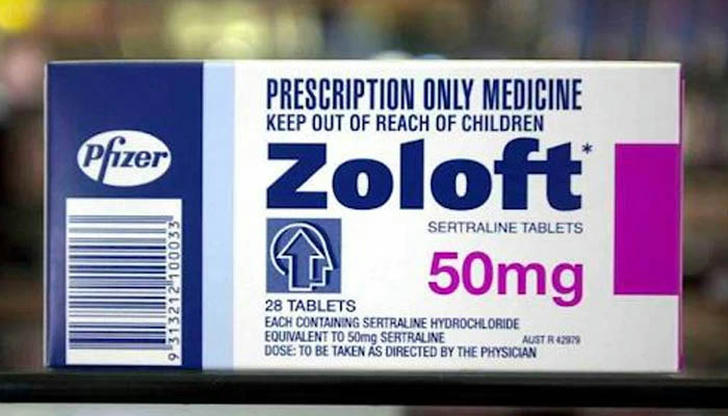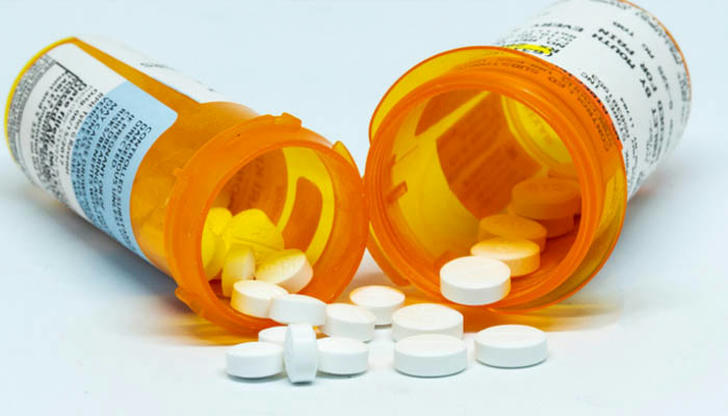Your Essential Guide To Zoloft
What is Zoloft?
Imagine Zoloft as your brain's best friend—a specialized antidepressant classified as a selective serotonin reuptake inhibitor (SSRI). Its superpower lies in balancing serotonin levels, those brain chemicals crucial for mood stability. Doctors prescribe Zoloft to tackle a range of mental health challenges, from the weight of depression to the grips of obsessive-compulsive disorder (OCD), social anxiety disorder (SAD), panic disorder (PD), and the haunting echoes of post-traumatic stress disorder (PTSD).

Important Warnings
Never stop taking Zoloft without first checking with your doctor.
Depression or mental health issues can sometimes lead to thoughts of suicide. Some younger individuals might experience more suicidal thoughts when they start a new depression medication. If you notice any sudden mood swings, changes in behavior, or thoughts of suicide, let your doctor know immediately.
If you experience symptoms of serotonin syndrome, like feeling unusually restless, seeing things that aren't there, having a high fever, sweating, shivering, a racing heart, stiff muscles, twitching, trouble with coordination, nausea, vomiting, or diarrhea, get medical help right away.
Before Taking Zoloft
Allergies and No-Gos: Hold off on Zoloft if you're allergic to sertraline or taking pimozide. Also, steer clear of Zoloft oral solution if you're using disulfiram (Antabuse).
MAOIs and the 14-Day Rule: Mixing Zoloft with monoamine oxidase inhibitors (MAOIs) is a no-go zone. To avoid fireworks, wait a solid 14 days after stopping MAOIs before starting Zoloft.
Medication Mixtape: Your doctor needs the lowdown on all your medications, whether they're for depression, Parkinson's, migraines, infections, or the nausea blues. Certain combos can trigger serotonin syndrome, so better safe than sorry.
Health History Check: Got a laundry list of health hiccups? Whether it's allergies, bipolar disorder, heart quirks, seizures, or sodium sputters, spill the beans. Your doctor needs the full picture to make Zoloft work for you.
Not for Every Kid: Zoloft's an okay buddy for kids six and up, but strictly for OCD, not depression.
Baby Steps in Pregnancy: Planning a family or already expecting? Zoloft's effects on the baby need careful monitoring. Talk to your doctor before starting or stopping—it's all about what's safest for you and your baby. Breastfeeding? Check with your doctor first.

How to Take Zoloft
Take Zoloft just as your doctor instructs. Follow the directions on your prescription label and review all medication guides. Your doctor might adjust your dose from time to time.
You can take Zoloft with or without food, but try to take it at the same time each day.
If you're using Zoloft liquid, mix it with a liquid right before you take it. Follow the mixing instructions carefully, and ask your doctor or pharmacist if you need any help.
Let your doctor know if you experience changes in sexual function, like a decreased interest in sex, difficulty reaching orgasm, or issues with erections or ejaculation. Some of these problems can be treated.
Use the syringe or dose-measuring device provided to measure the medication, not a regular spoon.
Sertraline might affect drug test results. Inform the lab staff that you are taking Zoloft.
Do not stop Zoloft abruptly as it might cause uncomfortable symptoms like agitation, confusion, or sensations similar to electric shocks. Always consult your doctor before discontinuing the medication.
Store Zoloft in a tightly closed container at room temperature, away from moisture and heat.
Dosage Information
The dosage of Zoloft varies depending on the condition being treated and individual response. Your doctor may adjust your dose over time.

Side Effects of Zoloft
If you have any of these signs of an allergic reaction to Zoloft, get emergency help right away:
Skin rash or hives (with or without fever or joint pain) Trouble breathing Swelling of your face, lips, tongue, or throat
Tell your doctor if you notice any new or worsening symptoms, like:
Changes in mood or behavior More anxiety or panic attacks Difficulty sleeping Feeling overly impulsive, irritable, agitated, hostile, aggressive, restless, or hyperactive (either mentally or physically) Feeling more depressed or having thoughts of suicide or self-harm
Serious Side Effects
Call your doctor right away if you experience:
Unusual bleeding or bruising Seizures Changes in vision, eye pain, redness, or swelling Symptoms of low blood sodium, like headache, confusion, memory problems, weakness, or feeling unsteady Manic symptoms such as racing thoughts, high energy, risky behavior, extreme happiness, or being overly talkative or irritable
Effects on Children
Sertraline might affect how a child grows, so their height and weight may be checked often.
Common Side Effects
Zoloft may cause:
Upset stomach, nausea, diarrhea, or loss of appetite Nosebleeds More sweating Feeling tired, having trouble sleeping, or insomnia Anxiety Bladder control issues Tremors or feeling agitated Sexual problems

Drug Interactions with Zoloft
Zoloft can cause a serious heart problem. Your risk may be higher if you also use certain other medications for infections, asthma, heart conditions, high blood pressure, depression, mental illness, cancer, malaria, or HIV. Discuss all medications with your doctor before starting Zoloft.
Ask your doctor before taking a nonsteroidal anti-inflammatory drug (NSAID) such as aspirin, ibuprofen, naproxen, Advil, Aleve, or Motrin. Using an NSAID with Zoloft may increase the risk of bruising or bleeding.
Zoloft may interact with other medications, including prescription and over-the-counter drugs, vitamins, and herbal products. Inform your doctor about all medications you use to avoid potential interactions.
